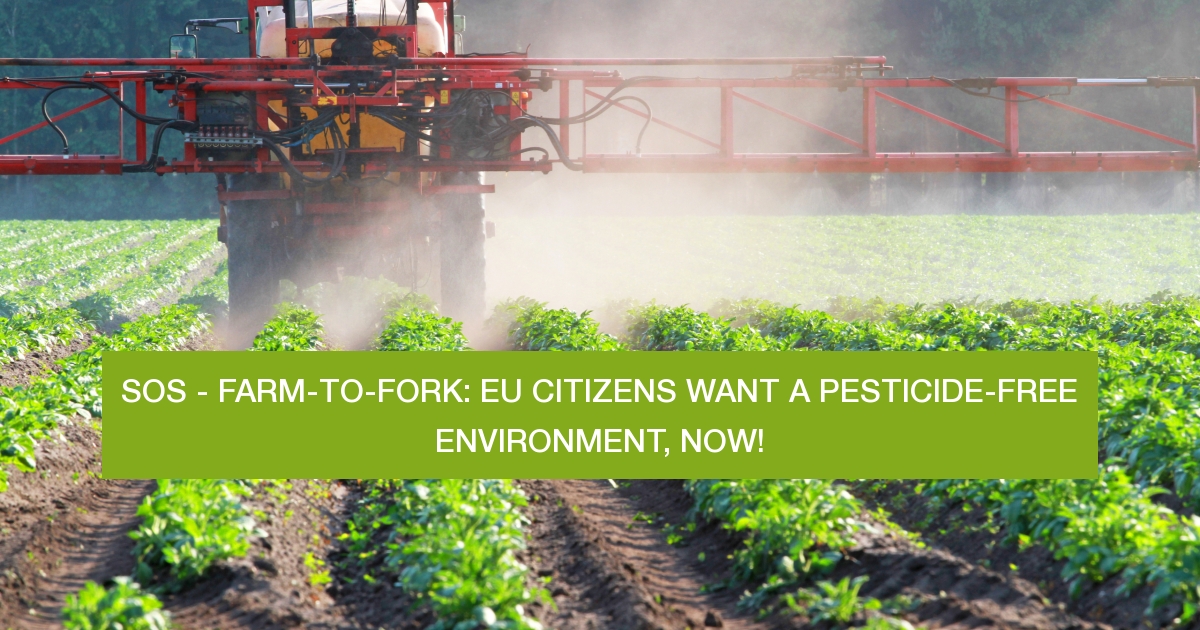Ironically, exactly at the launch of the Pesticide Action Week[1] (20-30 March), the European Commission gave in to the pressure of agribusiness lobby groups. By postponing the publication of a Pesticide Reduction Regulation and the Nature Recovery Law, PAN Europe considers the Commission is making a mistake as they are part of the answer for the EU to become more independent in terms of food and feed productions.
Today, the European Commission was supposed to publish its proposal for a Regulation on the Sustainable Use of Pesticides as well as the draft Nature Restoration Law. Instead, they will release a Communication on safeguarding food security and reinforcing the resilience of food systems. This comes after a massive and shameless lobby from a number of political groups in the European Parliament[2], from intensive farming lobbies, as well as under the pressures by a series of Member States[3]. All these attacks on the needed transition towards more sustainable agriculture were triggered by the current geopolitical situation in Ukraine.
Martin Dermine, a Policy officer at PAN Europe said: "Postponing the publication of the Sustainable Use Regulation and the Nature Restoration Law is a very negative signal given to EU citizens! Especially when no date is proposed! The current crisis is linked to the prices of feed, petrol and synthetic fertilizers: they highlight how vulnerable our model of intensive agriculture is and how dependent the EU is. It confirms we need more Farm to Fork to make our food systems resilient, not less!"
Since a few days, over 400 EU scientists signed a pledge[4] asking to "reinforce – and not abandon – the transformation towards a healthy, just, and environmentally-friendly food system." They call for a demand-, not a supply-driven transition, in total harmony with the objectives of the Farm to Fork.
Henriette Christensen, a Senior adviser at PAN Europe added: "This year is the 60th death anniversary of environmental scientist Rachel Carson, who first denounced the negative impact of pesticides on biodiversity. Since then, our biodiversity has collapsed, and scientists have become more and more vocal on the urgency to move away from chemical- and fuel-intensive agriculture to protect people's health and the environment. The European Commission must stand with its citizens, not with the intensive farming lobby!".
In September 2021, the European Citizens Initiative Save Bees and Farmers[5] was successful in collecting 1.2 million signatures to phase out the use of synthetic pesticides in the EU by 2035 and strongly support the transition towards agroecology. Similarly, cutting pesticide use is one of the conclusions of the citizen's panel of the Conference for the Future of Europe[6].
Martin Dermine concludes: "Citizen's expectations to live in a pesticide-free Europe are huge. Science has confirmed that feeding Europe without pesticides is cost-effective and would benefit farmers, consumers and the environment. For the sake of democracy, it is high time the EU stops listening to agribusiness and fulfills its promises to move away from pesticides and finally protect people's health and the environment."
Contact PAN Europe, Martin Dermine, +32 486 32 99 92, martin [at] pan-europe.info
[1] http://www.pesticideactionweek.org/
[2] https://www.politico.eu/wp-content/uploads/2022/03/11/2022-03-10-EPP-Gro...
[3] https://data.consilium.europa.eu/doc/document/ST-7269-2022-INIT/x/pdf
[4] https://zenodo.org/record/6371849#.Yjm_oTXTW70
[6] https://futureu.europa.eu/rails/active_storage/blobs/eyJfcmFpbHMiOnsibWV...

